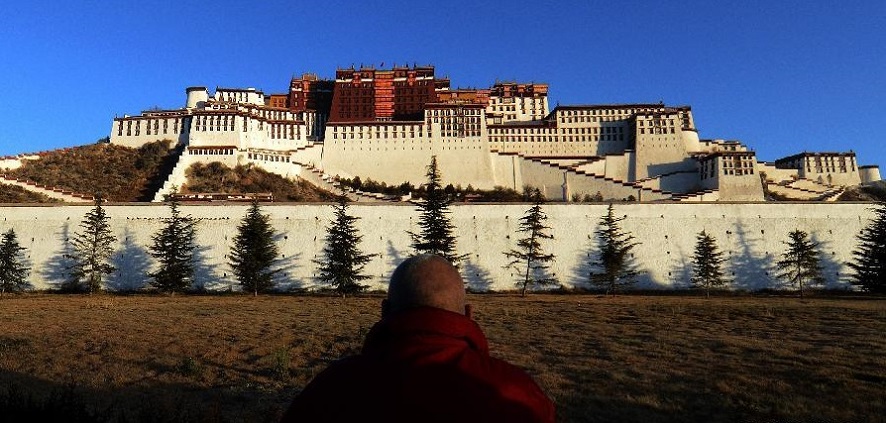By Liu Rong (People’s Daily Online) 05:16, August 26, 2015

The Chinese central government will never accept the “Middle Way” proposed by the DalaLama group, China’s United Front said in its official website in an article pen namedKelsang.
The article was posted after the Chinese Central Government ended its sixth workingconference on Tibet Tuesday in Beijing.
“The Central Government did not in the past, nor is now and will not in the future acceptthe Middle Way solution to the Tibet issue,” reads the article.
The essential intent of the ‘Middle Way’ is to split China, “ adds the commentary , sayingthat the Dalai group refuses to accept China’s sovereignty in Tibet and wants to seize thereins of power and set up a semi-independent political regime.”
In particular, China is against the Dalai Lama’s proposal for a “high degree of autonomy”in Tibet, saying “the essence of ‘a high degree of autonomy’ is to setup ‘a state within astate’ free of any control from the central government.
The article recalls that the central government has attached great importance to Tibet,holding six Tibet working conferences since 1980, with the second one in 1984, the thirdone in 1994 , the fifth one in 2010 and the sixth conference ended just on Tuesday.
Each Tibet working conference worked out specific measures to push forward Tibet’seconomic development and secure social stability.
On Tibetan Buddhism, the article promotes “political unity and respecting religious belief” saying the government is against intervening and limiting Tibetan’s religious freedom.




 Print
Print Email
Email